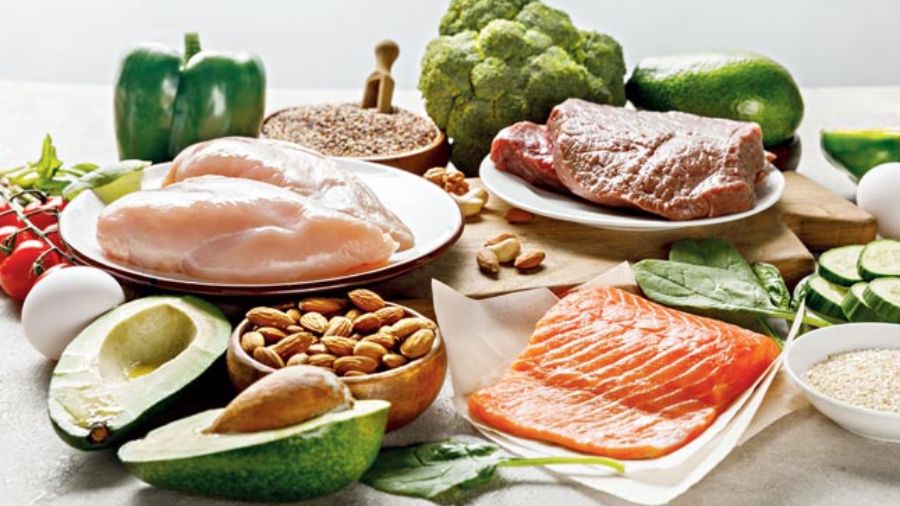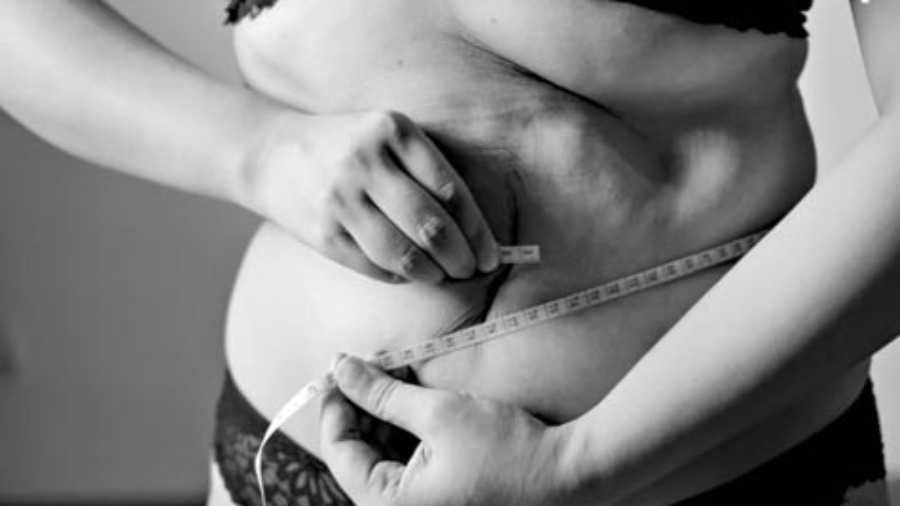PCOS (Polycystic Ovary Syndrome) is a hormonal imbalance that affects up to 20 per cent of women worldwide. From infertility to heart disease, PCOS could lead to weight gain, acne, wonky periods, exhaustion, mood swings, infertility, hirsutism or the growth of coarse hair on the back or on the face. Even though no one is quite sure what causes PCOS or if it can be cured 100 per cent, one thing that has been proven time and again is that a healthy diet is of enormous value. Food has a direct and almost immediate impact on our hormones, which makes it a very powerful tool for those who have been diagnosed with PCOS. Food can play a major role in helping women deal with many of the symptoms that come with PCOS.
Therefore, following a healthy diet could be the first essential step to manage the condition and enhance the effects of any medication that one decides to take.
THE HORMONAL CASCADE THAT COMES WITH PCOS
Most women with PCOS are insulin resistant, irrespective of obesity, as they have high levels of insulins in their blood, a condition called hyperinsulinemia. High levels of insulin in the body stimulates the ovaries to produce large amounts of male hormones called the androgens. Excess androgens in the body prevents the ovaries from releasing an egg, causing irregular or absent periods, one of the most common symptoms of PCOS.

THE INSULIN DIET:
Contrary to the popular opinion, carbohydrates don’t need to be avoided altogether. Instead, it’s important to consume it wisely.
1. Aim to consume around 10g of fibre in every meal. Soluble fibre reduces the glycemic load of food, thus helping in maintaining healthy sugar levels. Fibre-rich fruits and vegetables such as plum, avocado, banana, artichoke, broccoli, carrot, whole grains and legumes, nuts and seeds like almond, chia, flax seed are some good options to incorporate. To give a rough idea — two multigrain rotis would have around 6g of fibre, one portion of okra would have around 3-4g of fibre and 2tsp of flax seeds would give around 3g of fibre.
2. Aim to consume at least 15-20g of lean protein in every meal. Meat, poultry, fish, eggs, tofu, tempeh, whey protein supplements are some options that can be considered.
3. Colourful, non-starchy, cruciferous vegetables such as lettuce, cucumber, celery, tomato, mushroom, pepper, asparagus etc. should be incorporated in the diet in generous quantities.
4. Incorporate healthy fats in moderate quantities such avocado, olive, nuts, coconut and seeds.
5. Build your plate around proteins and fibre-rich vegetables while adding smaller amounts of starchy vegetables and whole grains to the diet.
6. It is also important to focus on the total calorie intake per meal. A meal that is high in proteins or fats could also cause an insulin spike if the portion size is not controlled. Eating smaller portions and having small frequent meals help in keeping the insulin levels stable.

PCOS AND WEIGHT LOSS:
Repeated studies have shown that maintaining a healthy weight and body fat percentage helps in reducing the severity of the symptoms of PCOS. However, for women diagnosed with the same, it could be slightly more difficult. Women with PCOS tend to have lower than expected BMR (basal metabolic rate). It is safe to say that there could be a possible link between insulin resistance, BMR and obesity in women with PCOS.

THE WEIGHT LOSS FORMULA:
To simplify this, weight gain or obesity depends largely on energy balance i.e. energy in vs energy out. “Energy in” depends on the food you eat, digest and absorb. “Energy out” depends on:
A. BMR (Basal Metabolic Rate of the individual)
B. NEAT (Non Exercise Activity Thermogenesis), that is, any physical activity that is not a part of a structured workout routine such as gardening, playing with kids, standing etc.
C. TEF (Thermic Effect Of Feeding)
D. EEE (Exercise Energy Expenditure)
Here’s the good news: even though the BMR for women with PCOS is lower than usual, all the other factors that determine weight loss are not affected by this condition. Therefore, a list of pointers to accelerate weight loss:
1. A diet plan that puts one in a calorie deficit. This does not mean that one follows a highly restrictive diet that leaves the body deficient in necessary nutrients, but a diet that is carefully crafted keeping in mind the total calorie intake while incorporating all the essential nutrients required by the body to maintain a healthy hormone health.
2. Staying active throughout the day and increasing daily activity levels could prove to be very beneficial in burning more calories and increasing metabolism. Tracking the number of steps achieved each day with the help of an app or a fitness tracker is a great way to make sure that the daily activity levels or NEAT remains high.
3. It is also extremely important to include both aerobic and resistance training to combat insulin resistance as well as lose weight.

THE PCOS CATCH-22
The inability to lose weight could lead to stress, anxiety, depression, which could trigger comfort eating and eating disorders such as bulimia, which could further lead to more weight gain. Thus, it is important for women with PCOS to take care of their physical and mental health. Healing PCOS becomes much easier when it is addressed by a community of different professionals such as doctors, nutritionists, physical trainers and therapists.
HEALING PCOS WITH SUPPLEMENTS:
1. INOSITOL: Myo-inositol is a vitamin-like substance found in fruits, beans, grains, and nuts. Studies show that they are important in ovarian function.There is evidence to show that myo-inositol when consumed with folic acid can improve ovarian function, reduce testosterone, insulin levels and increase fertility.
2. Omega 3 fish oils: It is known that Omega 3 supplements help in reducing blood pressure and triglycerides. It also improves insulin sensitivity and immune function. It could also play a role in reducing depressive symptoms.
3. Zinc: Zinc deficiency is usually common in women with PCOS and supplementation may regulate hair growth and skin quality.
4. Vitamin D: It plays a very important role in ovarian follicle development, progesterone production, maintaining a healthy menstrual cycle and fertility.
5. Magnesium and Chromium: They help in maintaining blood sugar levels and improving insulin sensitivity.
6. L-Carnitine: As per research, the hormone and metabolic parameters of women with PCOS can improve with a rough dosage of 250mg/day supplementation of L-Carnitine. Animal products like meat, fish, poultry, and milk are the best sources.

Nutrimend is a diet consultancy clinic founded by the sister duo Neha Patodia and Nupur Arya in 2016. They coach people how to eat right and healthy so they feel confident in their bodies and achieve their desired goals. Nutrimend as a brand believes in having a holistic and sustainable approach towards health.






